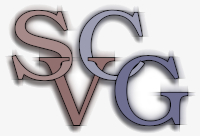Available Student Projects
Bachelor-level
RS in CS & BSc Thesis Projects
Bachelor thesis topics are closely linked to the Research Skills in Computing Sciences (RS in CS) course (course code: WBCS026-05, see Ocasys), the latter representing the necessary preparation in terms of project approach and literature review for the actual thesis project. Available projects are listed here, to be selected at the beginning of year 3 term IIa for the RS in CS course.
For external thesis projects and other, irregular BSc thesis procedures, refer to the section of Your Own Project Idea below.
Short programming project
The short programming project is embedded as an elective course (course code: WBCS015-05, see Ocasys) for Computing Science BSc students within the elective curriculum period(s). For more information of the learning outcomes, the modus-operandus and the scope of the course, please consider the course description on Ocasys. Student projects from the SVCG group for this course are published via Brightspace and its related course page.
Master-level
MSc Thesis Projects (contact the respective supervisor)
(Most of the following projects are scalable and can be adapted to suit other project types.)
Supervisor: Jiri Kosinka
- NURBS/CAD model processing; thesis/internship at Schut Geometrical Metrology (Groningen); contact me for details.
- Vector graphics and image vectorisation: this is a general area; email me if you wish to know more.
- Surface and envelope modelling for flank machining of surfaces; uses this paper as the starting point.
- AI-based crack detection; see PDF for details.
- Mitral valve modelling; in collaboration with C. Bertoglio; see Section 2 of this paper for a model for the aortic valve to get an idea.
- If you have taken the Advanced Computer Graphics course, I'll probably have a project for you;-)
Supervisor: Steffen Frey
- In situ visualization of large data; generating visualization of large simulation data on supercomputers while they are generated. Adaptive, data-dependent reduction of data.
- Visualization of porous media; analysis and comparison of large spatial ensembles from experiments and simulations. Joint project with the University of Stuttgart, Germany, within SFB 1313.
- Machine learning and optimization for visualization; data-driven extraction of meaningful features from large volumes of complex data and tuning of visualization systems. Example project: "Autoencoder-based Semi-Supervised Dimensionality Reduction and Clustering for Scientific Ensembles" (PDF).
Supervisor: Cara Tursun
- existing projects are already assigned, and no additional projects are available at the moment
Supervisor: Christian Kehl
- upcoming
Open Term Projects/Internships (Onderzoeksstage)
Most of the Master's thesis projects specified above by J. Kosinka and S.Frey can be adapted to a research/in-company internship project.
General
Your Own Project Idea
If you have an idea of a specific project or would like to work generally in a specific area, please let us know about it and we can then narrow the project down. Generally, we advise projects in the following (and related) areas:
- geometric modelling (curve and surface representation, splines, subdivision), computer (and especially vector) graphics, and (vector) image processing (contact Jiri Kosinka).
- scientific visualization (visualization of spatial data, time-dependent, parameter-studies etc.), scalable methods for large data, machine learning and optimization for visualization (contact Steffen Frey).
- visual perception and its applications in visual computing, AR/VR and novel display technologies, developing perceptually calibrated image/video quality metrics, computational models of the Human Visual System, designing and running psychovisual experiments (contact Cara Tursun).
- geo-visualization, geological reservoir modelling, (scientific) visualisation design, visual design space exploration, Lagrangian and Eulerian fluid mechanics visualisation (on each hydrostatic-, free-surface kinematic- and thermosalinic flow), surface annotation and structure-from-motion surface reconstruction (contact Christian Kehl).
For more information on the research in our group, see our research web pages. Lists of selected completed Bachelor projects, internship projects, and Master's projects are also available.
